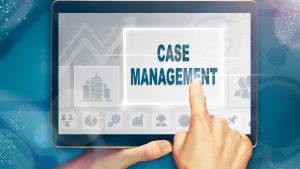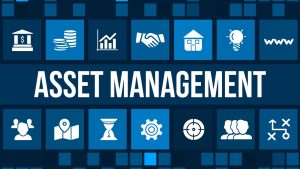Being healthy today is not restricted to one’s physical fitness. It instead also looks at one’s mental and spiritual well-being. Mental health has, for a time, been a taboo topic, with society not recognising it as a valid factor in assessing one’s overall health. However, since 1992, World Mental Health was celebrated on October 10th to spread awareness of it. While society has been slow to accept it even in 2023, at least in today’s world, the younger generation, in particular, has a greater acceptance of acknowledging one’s mental health.
An essential aspect of what defines the world today includes digital spaces. Since almost half the world is connected to the internet and has an online presence, the relevance of mental health in the digital age is an important topic. Interactions carried out on the internet or the amount of time you spend in front of a virtual screen, be it your phone or laptop, can significantly affect one’s mental health. This article will describe the importance of mental health in the digital age.
Technology is a Double-Edged Sword
While the rise of technology has made the lives of humans much easier, it also has certain drawbacks. For example, with the introduction of social media platforms, a person could henceforth communicate with their loved ones in another country in a matter of seconds for the first time. Hence, instead of waiting by post for a letter, technology has made it possible to hear your loved one’s voice and visually see them on a video call. It has, however, been a negative experience for those who may excessively use digital devices. People that face cyberbullying get addicted to games, or those whose privacy has been breached through the help of technology are at the end of the spectrum of being subjected to mental illness by becoming a victim of various scams or blackmails.
It Affects Everyone Regardless of Age, Ethnicity, and Gender
While the initial stages of the digital age only affected the mental health of teenagers and older crowds, today, as children as young as five are given access to smart devices, anyone could be subjected to the ill effects of technology. This has raised concerns among teachers, parents and governments. In multiple surveys, children and adults alike have experienced depression and anxiety. They start to hate their bodies and skin colours and start experiencing disturbing sleeping patterns.
In the worst case, individuals have taken their own life due to the severity of depression. These reasons have led certain countries to enact legislation restricting children’s digital access. For example, in South Korea, children that want to play online games that require a resident registration number between midnight and 6 am require parental permission. Japan and German have further implemented internet education for parents to understand the risk of online activities and to monitor what their children do.
According to a report by OECD, half of all mental illnesses begin by “the age of 14 and three-quarters by mid-20s” and sometimes “anxiety and personality disorders by the age of 11”. Most studies, however, note that such adverse consequences occur due to excessive internet use, implying that moderate use of technology is beneficial from a mental health perspective.
It should be remembered that the internet is a place for all. Hence, each person has the potential also to find a community that supports them. Thus, through technology, a person is given a platform to share their stories, read informative articles on mental health to understand what a person is going through and find a support group. At the same time, however, since the internet has people with contrary views on a certain subject, it could lead to “cancel culture”, a term which, as explained by Merriam-Webster, is used to refer to the practice whereby a large number of people express their disapproval and exert social pressure on a specific individual or group of individuals, driving them to isolation.
Mental Health in the Digital Space Can Be Affected Due to Your Professional Work Online
It is important to remember that being affected by social media is not restricted to your personal use. It could also be stressful working in the digital age. Biologically, humans are not built to sit at a desk hunched over a screen for long hours. It is not only the physical aspect of working in front of the screen that can be tedious but also the pressure of replying to so many emails. With digital technology, the boundaries of a client have been blurred. The number of people that can email you daily and the number of tasks that require ‘urgent’ attention has increased online since communication became faster. This has led people to continue their work even after hours, as international clients, in particular, require their queries to be addressed whatever the time it is in the country you are based in. This could lead to burnout, feeling isolated, being anxious, experiencing heartburn and more.
Mental Health in the Digital Space Can Be Affected Due to Your Professional Work Online
It is important to remember that being affected by social media is not restricted to your personal use. It could also be stressful working in the digital age. Biologically, humans are not built to sit at a desk hunched over a screen for long hours. It is not only the physical aspect of working in front of the screen that can be tedious but also the pressure of replying to so many emails. With digital technology, the boundaries of a client have been blurred. The number of people that can email you daily and the number of tasks that require ‘urgent’ attention has increased online since communication became faster. This has led people to continue their work even after hours, as international clients, in particular, require their queries to be addressed whatever the time it is in the country you are based in. This could lead to burnout, feeling isolated, being anxious, experiencing heartburn and more.
How to Protect Your Mental Health in the Digital Space
Keep in mind that you cannot control someone else’s behaviour, which could affect your mental health. But one popular philosophy to embrace is the Goldilocks Effect. This refers to asking oneself where the balance between too much technology and too little lies. In other words, how much of the digital world can you handle? Until you figure out the answer to this question, here are some things you can do to protect your peace of mind.
Take Technology Breaks
Taking a technology detox once in a while is a great way to relax mentally. This includes taking breaks not only from social media but also work platforms. Hence, do not tune into your work emails during the weekend or try to get a quick look during your vacation. Go off the digital grid entirely for a few days and enjoy nature, the present and those surrounding you. Try to take short breaks away from the screen during work hours by looking up. It is preferable to be in an environment with a window, allowing you to look outside, instead of a wall.
Be Selective about the Social Platforms you Use and What Your Share
Being on social media has good perks. Since COVID-19, the trend to only have an online store has led to businesses only having an online presence on social media. Hence, it widens your choices and bargain prices when purchasing something. Social media can also be an educational tool, helping you stay up-to-date on current affairs and other important concepts. Hence, instead of completely staying aware of social media, you can choose what you want to follow, friend and share. Refraining from adding strangers, being rude to someone in the comments section and rising above the need to have lots of likes or followers can help you.
Remember, Not Everything You Find Online in True
The type of information you find online can be overwhelming. In that respect, trying to distinguish between what is true and false can be challenging. The rise in filters on every platform has led to unrealistic beauty standards. Children and adults face anxiety and depression due to their physical features. By constantly seeing picture-perfect and filtered posts, they believe natural scars, pimples and freckles are things to be ashamed of. They grow anxious about body hair, their physical size, and their natural skin tone, all affecting their mental health. Understanding that many things are left unsaid or filtered out is important.
Talk to a Loved One or Get Professional Help.
Our mind works in different ways, and at one point in our lives, everyone is bound to be negatively affected in the digital age. When you are experiencing sadness, anxiety or depression for longer periods, making it hard for you to control, or you find yourself spiralling consistently, you need to seek help. In a world where everyone is in ‘grind’ mode, not everyone will notice when another is mentally struggling. Hence, talking to a loved and trusted person when you are mentally down or seeking professional help is a great way to relieve such negative thoughts.
How Else is the Digital Age Contributing to Mental Health?
Research notes that multiple digital tools are made available to address mental health among people. New reliable apps that specialise in coaching people or offering therapist guidance have emerged, all of which are meant to help reduce depression and anxiety. Social media is further used as a platform to spread mental health awareness and includes self-help posts that assist users, encouraging them to have a positive mindset and reminding others to be mindful of their words and actions.
Social media platforms have additionally progressed to give you more control over what you see. If a specific form of content is seen to trigger anxiety or have a related effect, you can choose not to see similar content again. You can limit your screen time on your phone so that you get alerts to stop using an app for a day. You can also report posts you feel are against community guidelines and block or report people as you see fit.
Prioritise Your Mental Health
A good way of approaching technology is to keep in mind that they are meant to make your life more convenient. In other words, digital spaces are tools to help you enhance and improve your personal or professional life. You should never at any point let it consume you in whatever capacity. At the end of the day, you are in control of your actions. Thus, being mindful of how many hours you spend on social media and the people you speak to and being careful with what you say will help you prioritise your mental health.






